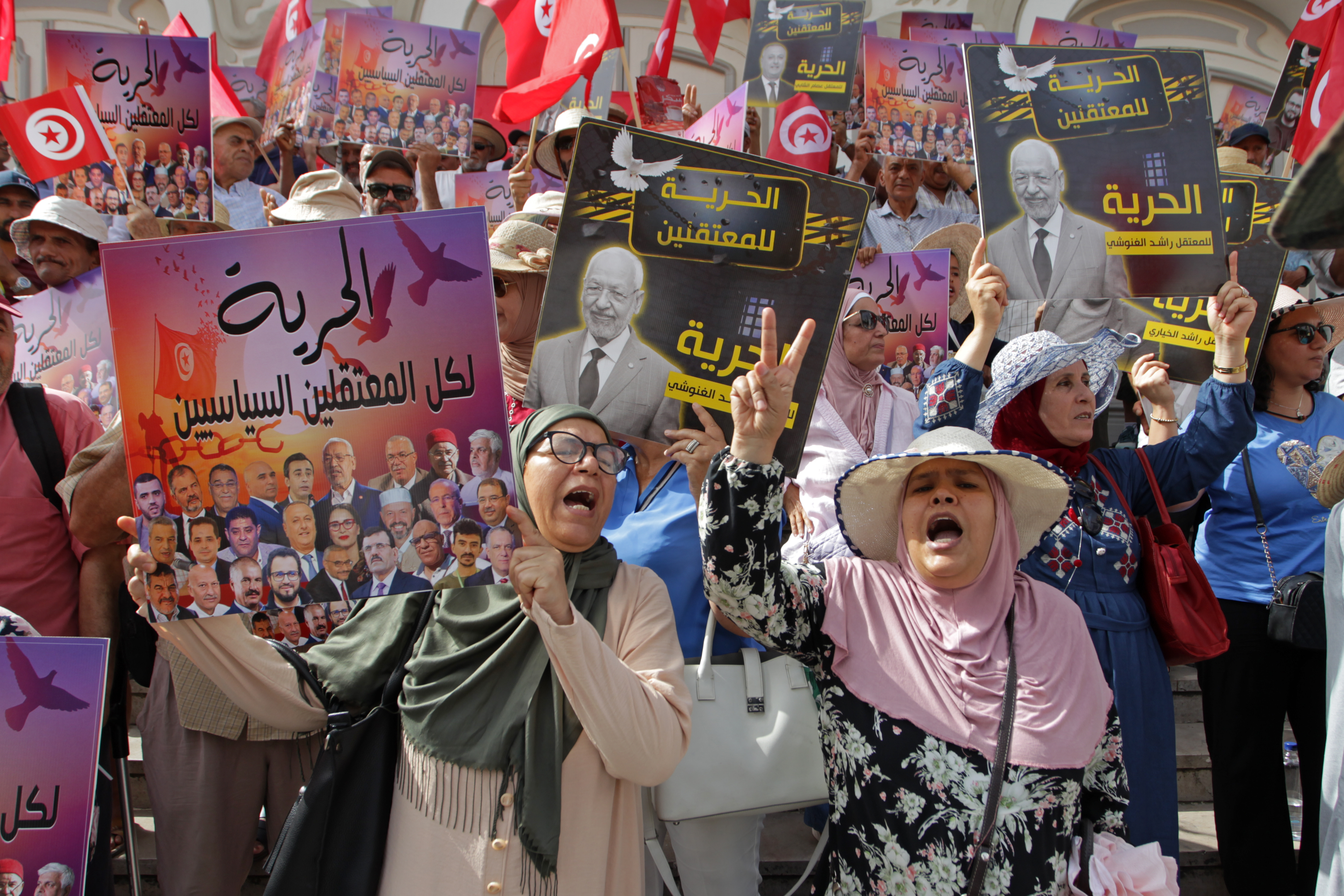
About 300 protesters have rallied in Tunis to mark the second anniversary of President Kais Saied’s adoption of sweeping powers and to demand the release of 20 detained opposition figures.
“Down with the coup. Freedom for all the prisoners,” the protesters chanted as they gathered in the heart of the capital on Tuesday, braving temperatures that topped 45 degrees Celsius (113 degrees Fahrenheit) in response to a call by the main opposition coalition, the National Salvation Front.
Saied dissolved the democratically elected parliament on July 25, 2021 and has since seized more powers, changing the country’s constitution in the process. His opponents decry his moves as a “coup”.
The opposition has kept up its protests against Saied despite the arrest in February of more than 20 opposition, media and business figures on charges of “conspiracy against state security”.
A judge ordered the release of writer Chaima Issa and former minister Lazhar Akremi this month, but the others remain in custody despite the appeals of human rights groups.
Rached Ghannouchi, the leader of what had been the largest bloc in parliament, the Muslim democratic Ennahdha party, is also in custody, serving a one-year prison sentence on “terrorism-related” charges after his April 17 arrest.
His daughter, Yusra, has called the charges “politically motivated and fabricated”.
Rights groups have condemned a “witch-hunt” aimed at “repressing” freedom of opinion in the North African country, which had been the sole democracy to emerge from the Arab Spring uprisings of 2011.
“Decree by decree, blow by blow, President Saied and his government have dramatically undermined respect for human rights in Tunisia since his power grab in July 2021,” Amnesty International’s Middle East and North Africa director, Heba Morayef, said in a statement.
“In doing so, he has stripped away basic freedoms that Tunisians fought hard to earn and fostered a climate of repression and impunity.”
Ayachi al-Hamami, a human rights activist, lawyer and opposition figure, told Al Jazeera that under Saied’s rule, the judiciary is in its “most miserable” state since the country’s independence in 1956.
“Even under the rule of President [Habib] Bourguiba, or President [Zine El Abidine] Ben Ali, the situation has not descended to this level,” al-Hamami said.
Last year, al-Hamami said, Saied enacted a decree that gives him the right to dismiss any judge without a right to a defence and stripped the judiciary of its powers as a stand-alone authority.
At least 57 judges and prosecutors were dismissed by Saied, and although an administrative court has ruled in favour of 49 of the judges who had appealed their dismissals, the justice ministry has ignored the court’s order to reappoint them.







